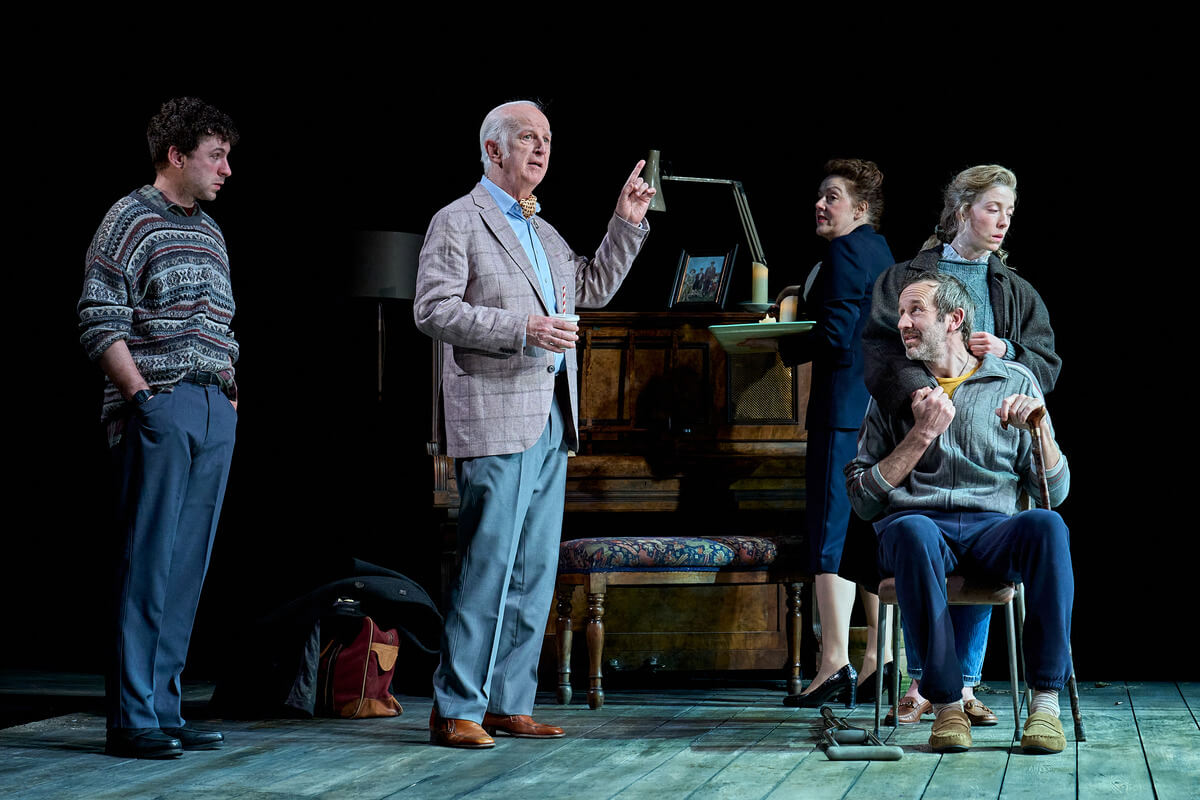Nigerian immigrants Tiwa (Donna Berlin) and her husband Segun (Maynard Eziashi) have done comparatively well for themselves having succeeded in various psychotherapy fields and through supplementing their net worth by publishing self-help books. Their daughter and son (Ore played by Gloria Obianyo and Bayo played by Simon Manyonda) are a doctor and policemen respectively, with diametrically opposed sibling viewpoints on the injustices of the criminal justice system, politics, policing, the NHS, and what does or doesn’t constitute an appropriate topic for conversation at family gatherings. They deliver barbs and constantly interrupt and shout over each other, triggering fractious family-wide arguments. The resultant delivery style is at once amusingly familiar and naturalistic, whilst also offering difficulties in comprehension for the audience in the more raucous moments.
Into the already volatile mix, is secreted a societal drop-out who has recently been struggling with the hopelessness presented by racial inequality and has been contemplating suicide despite having a baby to care for. Wunmi (Toyin Ayedun-Alase) contrives or unwittingly causes and simply becomes the catalyst for, a number of incidents and situations which cause the host family to rupture. We come full circle at the time of her leaving, with the formerly ordered home in utter disarray and with relationships and trust possibly damaged beyond all possible repair.
Paul Wills’ stylish kitchen set with slide screening and an overhead suspended track light fitting, imbues an air of middle class London design chic, like a place which has recently been subjected to one of those daytime TV makeovers. It would certainly be out of the reach of most black families, which is precisely why after initial criticisms and disdain, Wunmi is so drawn into its offer of temporary protection. Soon however, she destroys the very thing she identifies as relying upon to get her life back on track.
A lot of the staged arguments are well realised and the writer has attempted to introduce conflicting societal viewpoints on key matters which, (whilst they are felt by everyone), most particularly impact the black community. The blurted statistics reveal a shocking disparity in the levels of fairness, access and opportunity afforded ethnic minorities, but whilst these gritty facts are relevant and significant, sometimes the overtly self-conscious phrasing of individual passages feels a little clumsy in its attempts to invoke poetic metaphors. As faults go, it is not as noticeable as some of the evident personality flaws presented through the unrelentingly combative and unkind characters.

 Dipo Baruwa-Etti’s THE CLINIC has opened this week at the Almeida under the direction of Monique Touko. The title appears to be a reference to the open-plan kitchen environment of the wealthy black family’s home, in which social inequality discussions and familial bones of contention, provide rich pickings for hostility and combative misunderstandings within a family composed of both vehemently Right and Left leaning advocates, on the political spectrum.
Dipo Baruwa-Etti’s THE CLINIC has opened this week at the Almeida under the direction of Monique Touko. The title appears to be a reference to the open-plan kitchen environment of the wealthy black family’s home, in which social inequality discussions and familial bones of contention, provide rich pickings for hostility and combative misunderstandings within a family composed of both vehemently Right and Left leaning advocates, on the political spectrum. 


 In Gabriel Byrne’s one-man show,
In Gabriel Byrne’s one-man show,